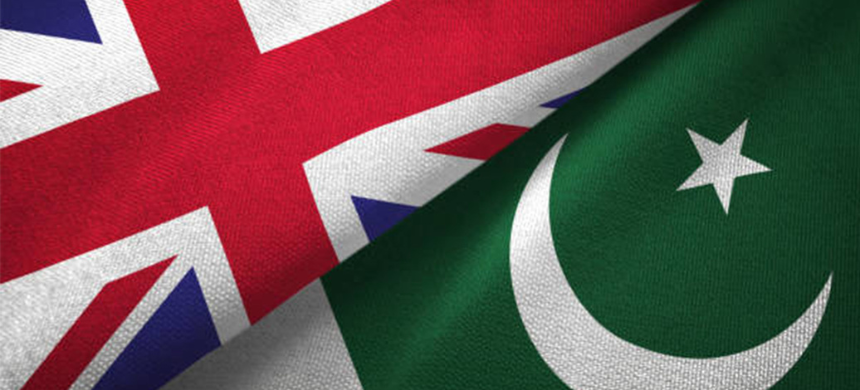ISLAMABAD – The upcoming UK-Pakistan Trade Dialogue will focus on reducing non-tariff barriers (NTBs) to strengthen and expand bilateral trade, according to British Trade Envoy to Pakistan Mohammad Yasin.
In a written interview with Dawn, Yasin stated, “We’re launching the UK-Pakistan Trade Dialogue — a structured ministerial platform focused on reducing non-tariff barriers through practical cooperation, technical support, and regulatory alignment.”
He expressed optimism that this initiative will accelerate progress in deepening economic ties between the two countries.
Yasin recently visited Pakistan to lay the groundwork for the dialogue, which is expected to commence later this year. During his trip, he held meetings centered on investment opportunities, regulatory reforms, and business-to-business linkages, with a particular focus on high-value sectors like technology and pharmaceuticals.
The UK-Pakistan Trade Dialogue aims to unlock the full potential of a bilateral trade relationship currently valued at £4.7 billion. Key objectives include addressing business environment challenges, diversifying Pakistan’s export portfolio, and improving market access for sectors beyond traditional textiles — such as clean energy, digital services, and value-added manufacturing.
Major NTBs affecting trade between the two countries include the UK’s strict technical standards, especially in textiles and pharmaceuticals. These standards pose significant hurdles for many Pakistani small- and medium-sized enterprises (SMEs), which struggle with the high costs of certification. Additional barriers include sanitary and phytosanitary regulations that complicate agricultural exports, complex post-Brexit customs procedures causing delays, and rising UK consumer expectations for ethically and sustainably sourced products.
On the domestic front, Pakistan faces its own trade obstacles, including inefficient export procedures and infrastructure limitations. Despite enjoying duty-free access under the UK’s Developing Countries Trading Scheme, Pakistani businesses — particularly in high-value sectors — are often unable to fully benefit due to these non-tariff hurdles.
Read More: https://theneutral.pk/pakistani-delegation-arrives-in-the-u-s-to-finalize-trade-deal/
Commenting on a possible Free Trade Agreement (FTA), Yasin said, “While FTAs require significant resources and time, this dialogue allows us to make faster, targeted progress on the issues that matter most to exporters to support growth. This work complements both countries’ economic priorities.”
Although there is currently no bilateral FTA in place, the dialogue is seen as a practical step toward aligning standards and easing market entry — potentially laying the foundation for a future agreement.
Yasin also reaffirmed the UK’s commitment to supporting Pakistani SMEs, especially in the tech sector. Through the UK’s REMIT programme, efforts are underway to improve the business environment, expand access to finance, and promote digital transformation.
Highlighting Pakistan’s dynamic tech and digital services sectors, he noted the UK’s interest in seeing more Pakistani tech companies leverage the UK as a launchpad to access European and global markets.
British development finance institutions are playing a key role in this effort. British International Investment is actively funding digital infrastructure and promoting financial inclusion in Pakistan, while UK Export Finance is helping local firms grow exports and build partnerships with UK-based businesses.
Yasin, however, declined to comment on how the China-Pakistan Economic Corridor (CPEC) affects UK-Pakistan trade relations or the UK’s broader geopolitical considerations in the region.










